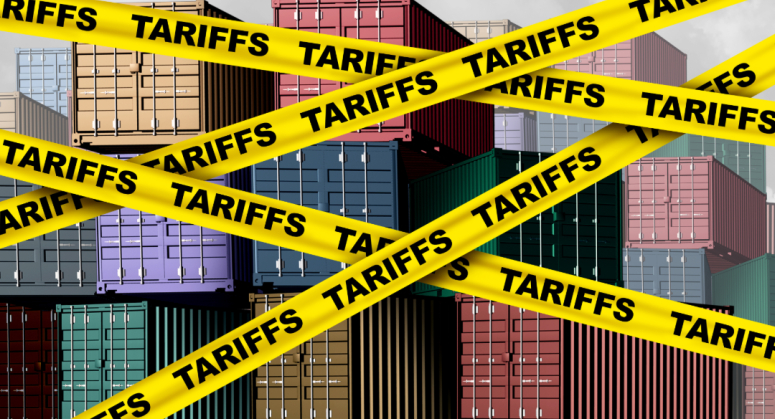
The US economy in 2025 is like a giant ship sailing in turbulent waters. Despite constant turbulence, multiple supports have temporarily avoided more severe shocks. However, global economic observers and authoritative institutions have warned that although the economic slowdown this year may be less severe than expected, the tariff policies led by the Trump administration will trigger a more severe impact in 2026. This economic storm triggered by trade barriers is gradually gathering momentum, and its destructive power will be fully realized in the future.
First-quarter GDP data shows that the US economy has shown some resilience. Unadjusted GDP grew by 2.1% year-on-year, reaching nearly $7.5 trillion, a record high. This seemingly optimistic data actually conceals risks. Businesses are circumventing the initial impact of tariffs by reducing inventory and squeezing profit margins, and the increase in import costs has not yet been fully passed on to consumers. In addition, large-scale investment in artificial intelligence has provided support to the economy, partially offsetting the negative impact of tariffs. However, this "buffer" is not sustainable and healthy growth, but rather a short-term strategy for businesses to cope with uncertainty. Although economic data hasn't deteriorated significantly in the short term, tariffs are already dragging down growth through various channels. IMF data shows that US economic growth projections have plummeted from 2.7% at the beginning of the year to 1.8%, the largest decline among developed economies. Policy uncertainty, trade frictions, and weakening demand momentum are the core drivers. Since the beginning of the year, the Trump administration has implemented multiple rounds of tariff escalations, pushing effective tariff levels to their highest level since 1934 (18.3%), raising commodity costs and discouraging investment. The "lagged impact" of tariffs will be felt in 2026 through supply chain restructuring and shrinking investment. The OECD warns that as the full impact of tariffs is transmitted through supply chains and labor markets, global economic growth will slow to 2.9% in 2026, with US growth falling to 1.5%. To avoid high tariffs, companies are forced to relocate production lines from low-cost regions to the US or third countries, resulting in soaring costs and declining efficiency. For example, supply chain disruptions in industries like automotive and electronics have triggered a chain reaction, contributing to a persistently low level of corporate investment. Goldman Sachs and Morgan Stanley have both lowered their 2026 US growth forecasts to 1.2%, warning that the risk of recession has risen to 20%.
Faced with this grim outlook, the US urgently needs policy shifts and international cooperation. OECD Secretary-General Coleman emphasized that a lasting resolution to trade tensions is key to boosting growth potential. First, the US should gradually reduce punitive tariffs to reduce costs and uncertainty for businesses; second, promote multilateral trade negotiations to rebuild fair and effective global trade rules; and finally, support the transformation of impacted industries and build supply chain resilience through fiscal stimulus and industrial subsidies. Only by abandoning unilateralism and returning to international cooperation can the economic storm of 2026 be avoided.
The current "buffer period" for the US economy is merely the calm before the storm. The lag and cumulative risks of tariff policies will trigger a systemic shock in 2026, dragging down growth, driving up inflation, worsening employment, and even destabilizing financial markets. Policymakers must confront this crisis squarely, replacing trade barriers with pragmatic cooperation, and paving the way for economic recovery and long-term growth. Otherwise, the United States may fall into a "tariff trap" - a short-term buffer will be exchanged for a more severe long-term recession.

On January 7th local time, GameStop (GME.US) announced that the company's board of directors had approved a potential executive compensation package worth $3.54 billion, which was targeted at the company's CEO, Ryan Cohen. At the same time, this new compensation package set extremely high performance thresholds: Cohen, the CEO, needed to increase the company's market capitalization from $9.5 billion to $100 billion.
On January 7th local time, GameStop (GME.US) announced that…
According to the British media The Guardian, recently US Pr…
In today's era of deep integration of globalization and dig…
In early 2026, US President Trump forcibly took control of …
Recently, the corn market dynamics analysis released by Aus…
Donald Trump has proposed an "immediate" restriction on lar…